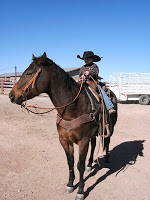**This article is not a substitute for the advice of an attorney.**
Here are a few ag law items making the news this week.
* AQHA Case Update. Many of you were interested in the blog post last week discussing the recent jury verdict against the American Quarter Horse Association’s ban on registration of cloned animals. This week, the judge in that case entered an injunction that requires the AQHA to begin registering clones and their offspring. The judge also considered the plaintiffs’ claim seeking to recover nearly $900,000 in attorney fees from the AQHA. The just has requested that briefing and billing statements be submitted and did not issue any ruling on the claim at the hearing on Monday.
According to the AQHA’s website, it is preparing to file a motion asking the court to set aside the jury’s verdict on grounds that it was not supported by the evidence. If that motion is denied, the AQHA says that it will file a notice of appeal of the decision. It is expected that upon the filing of an appeal, the AQHA will ask the judge to stay the requirement that clones be registered until the appeal is decided.
* Texas Facing Water Shortage. Two articles this week outline the water shortage facing Texas.
First, 24/7 Wall Street published an article listing 9 cities that are running out of water due primarily to a combination of drought and increased water demand from population growth. Five Texas cities made the list: Corpus Christi, Brownsville, Harlingen, McAllen, and Lubbock. The remaining cities are in Colorado and New Mexico: Santa Fe, Albuquerque, Colorado Springs, and Pueblo. [Read article here.]
Second, the Southwest Farm Press reported on a recent panel discussion at the Texas Produce Conference of long-term water issues facing the state. If changes are not made, Texas will have a gap between water demand and water availability by 2060. The panelists believe that conservation will be a pivotal part of the state’s water strategy. Additionally, improved infrastructure will be key to preventing water loss. [Read article here.]
* CRP payments and Self Employment Tax. Confusion arises about whether CRP payments are subject to self employment tax. Generally, income that a farmer receives from farming is subject to the tax, but rental income is not. CRP rules refer to payments as “rent” and that has caused confusion among producers as to whether self employment taxes are owed. A recent Tax Court decision again holds that normally CRP payments are subject to the self employment tax. There is an exception, however, for farmers who also receive social security retirement or disability benefits. Farmers with land enrolled in CRP should contact their accountant to ensure that CRP payments are property reported on tax returns. [Read article here.]
* Iowa Plant Ends Horse Slaughter Bid. After the temporary restraining order prohibiting two plants from commencing horse slaughter, one of the plants has announced it will no longer seek to slaughter horses. Responsible Transportation, located in Sigourney, Iowa, says that it cannot afford to wait for additional legal action and will turn its focus to slaughtering cattle. The second company, Valley Meat Co., which is located in Roswell, New Mexico, will continue to seek to open horse slaughter operations. The next hearing on this issue is expected within the next 30 days in New Mexico federal court. [Read article here.]
* Butter Cow Attack. Animal rights activists covered the Iowa State Fair Butter Cow in red paint last Sunday. The cow has been a fair tradition for over 100 years. The Animal Liberation Front made a statement following the attack, claiming that it was a “reminder that there are people opposed to the eating of meat and dairy and that the meat and dairy industry is inordinately cruel.” No arrests have been made yet, but the vandalism was cleaned up and the exhibit is back to normal. [Read article here.]













